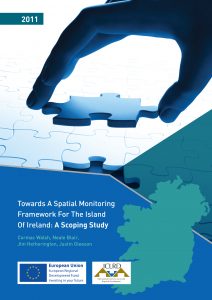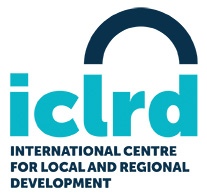
In 2011 ICLRD published the paper Towards a Spatial Monitoring Framework for the Island of Ireland: a Scoping Study. This report focuses on the application of data for the purpose of informing policy decisions, in particular with respect to the policy objectives and strategic ambitions of the National Spatial Strategy for the Republic of Ireland (NSS) and the Regional Development Strategy for Northern Ireland (RDS). It draws on international experience at the European level and elsewhere in the UK.
Launched in 2001, the RDS set out an ambitious long-term strategic policy framework, with the aim of providing an explicit spatial dimension to the investment plans and sectoral policies of the Northern Ireland Executive. The NSS, published in 2002, similarly articulated a strong vision and long-term strategy for balanced regional development. Monitoring and evaluating the progress of the NSS and RDS in achieving their objectives has become increasingly critical in recent years with the rising levels of uncertainty and volatility in relation to spatial development and socio-economic trends and a recognized need for a fundamental reappraisal of the role of planning systems North and South.
While there have been some efforts to date to track and measure progress towards the tangible and intangible objectives of the two strategies, a framework is needed to monitor advances in a concrete and comparable way. This new report responds to the need for a joined-up approach to evidence-based planning given the emergence of multiple spatial planning initiatives within the Irish cross-border region. International studies and experience indicate the importance of evidence-informed approaches to decision making but also the dangers of relying on statistical or quantitative information without taking due account of the underlying processes the data represents. As documented in previous ICLRD publications on evidence-based planning, the challenge of having too much data can lead to being ‘data rich but insight poor’. This newest ICLRD study will provide a valuable source of expert advice for policy-makers and practitioners at national and regional government levels.
Download the report here.
